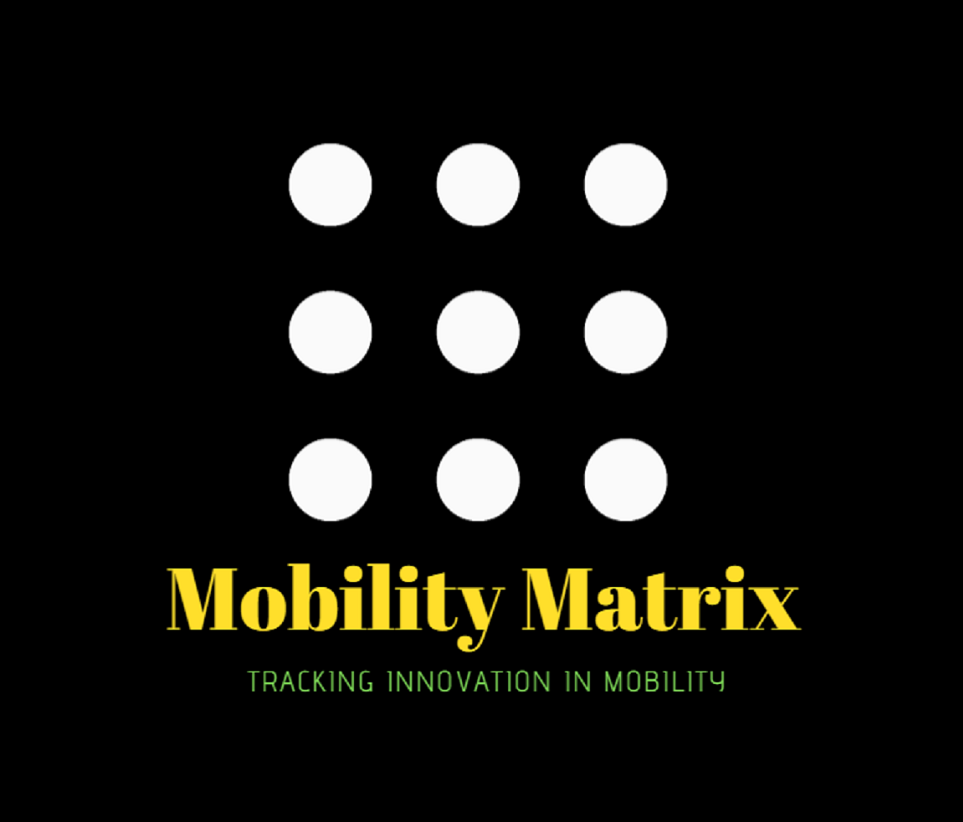
The post presents some important developments that took place this week in the field of Autonomous Vehicles, Connected Vehicles, Shared Mobility, Clean Mobility, and Research.
Waymo expanding testing in San Francisco
Waymo is expanding its testing in San Francisco, the company said in its blog. The city is known for topographical variety – from rolling hills to sandy ocean highways, tiny side streets to huge freeways, bike lanes to tram tracks. Also, its streets are busy with traffic, pedestrians, cyclists, scooters, emergency vehicles and light rail vehicles. Therefore the company believes that testing its autonomous vehicles in the city will help it build up the most mature technology stack in the industry. The company has started limited rider testing in San Francisco with Waymo employee volunteers to gather feedback. It is conducting this testing with enhanced COVID-19 protocols to ensure the safety of everyone involved.
Pirelli’s Cyber Tyre system, made up of a sensor in each tyre
Pirelli is equiping its tyres with sensors as a standard in McLaren Artura. Pirelli’s Cyber Tyre system, made up of a sensor in each tyre that gathers vital data for safe driving, linked to software integrated into the car’s onboard computer. The car with sensor-equipped tyres will offer safer and more involved driving experience.
This information – including temperature and pressure, constantly monitored and transmitted in real time – is vital when it comes to safety. The information is also delivered, with greater precision compared to traditional sensors on the valve, as the Pirelli transmitting sensors are in direct contact with the actual tyres rather than the wheel rims.
The data supplied from the sensors is processed by software created by Pirelli that is integrated into the car’s electronics. Some information can be seen on the dashboard and the central display; other information is used by the car’s electronics to calibrate the driver alert systems based on the exact characteristics of the tyres and their status.
Bosch teams up with Microsoft to develop a software platform for connected vehicles
Bosch has teamed up with Microsoft to develop a software platform to seamlessly connect cars to the cloud. The goal of this collaboration is to simplify and accelerate the development and deployment of vehicle software throughout a car’s lifetime in accordance with automotive quality standards.
The new platform, which will be based on Microsoft Azure and incorporate software modules from Bosch, will enable software to be developed and downloaded to the control units and vehicle computers. A further focus of the collaboration will be on the development of tools that increase efficiency in the software development process.
Continental invests in Recogni
Continental has acquired a minority stake in the German-US start-up Recogni. The company is working on a new chip architecture for object recognition in real time based on artificial intelligence (AI). The processors of the future are intended for use in Continental’s high-performance vehicle computers, among other applications, where they will perform rapid processing of sensor data for automated and autonomous driving. As a strategic investor, Continental is contributing both its financial commitment as well as its expertise in the field of AI, vehicle sensors and advanced driver assistance systems to further the development of the chip design.
Siemens Mobility to develop MaaS platform in Netherlands
Siemens Mobility has signed a contract to develop a countrywide, intelligent Mobility as a Service (MaaS) platform in the Netherlands. The MaaS platform to be delivered in the autumn will allow providers to integrate travel planning, the providers can draw attention to their services and better tailor them to the needs of travelers, while also optimizing their fleet management. In addition to efficiency and passenger comfort, MaaS also provides eco-friendly and sustainability benefits.
The contract has been signed with the joint venture RiVier (NS, HTM and RET). The technological core of the MaaS platform is supplied by Siemens Mobility subsidiaries Hacon and eos.uptrade. The platform is being developed as an open ecosystem that can be connected to existing apps from the MaaS providers NS, RET and HTM.
Hyundai explores innovative business model combining EV purchase with battery lease and battery reuse
Hyundai has signed MOU with South Korea’s Ministry of Trade, Industry and Energy as well as Hyundai Glovis, LG Energy Solution and KST Mobility. Under MOU, all involved parties will explore a new innovative business model combining electric vehicle (EV) purchase with battery lease and battery reuse. Through this agreement, the company aims to foster an EV ecosystem by alleviating the initial cost burden of EV purchases and providing innovative services that enable eco-friendly reuse of batteries.
Under the agreement, KST Mobility, the taxi operator, will sell the ownership of batteries in newly purchased EVs to Hyundai Glovis, the battery lessor. KST Mobility then pays a monthly fee for battery usage. As a result, KST Mobility is able to have lower initial investment for EV purchases. When the batteries are swapped after extensive usage, the removed batteries are reused in energy storage systems (ESS) for fast-charging EV taxis. To save cost, ESS is charged in the middle of the night when electricity rates are lowest and then charges EV taxis during daytime when electricity is comparatively expensive.
Groupe Renault and Faurecia to collaborate on hydrogen storage systems
Faurecia and Groupe Renault have announced their decision to collaborate on hydrogen storage systems for hydrogen light commercial vehicles. Starting at the end of 2021, Faurecia will supply hydrogen storage systems for a first fleet of light commercial vehicles. These systems will be developed and produced at its global center of expertise in Bavans, France. The company said in a Press Release that the collaboration on hydrogen storage systems is embedded in its strategy to offer marketready H2 solutions for light commercial vehicles and target over 30% share of this fastgrowing market in Europe.
Geely and Concordium Joint Venture to provide blockchain technology
The Concordium Foundation and the Geely have signed a Joint Venture agreement. The JV will use Concordium’s Blockchain Technology to become a leading Blockchain Technology- and Service Provider in China. According to the agreement, Geely will own 80 percent of the JV and 20 percent will be owned by Concordium. The joint venture will be operationally co-managed by both parties. The Joint Venture will allow Geely and Concordium to offer businesses and customers access to new blockchain platform-based business models and user DApps for all industries, including the automotive segment.
Enhancements to BlackBerry Radar announced
BlackBerry has announced enhancements to its BlackBerry Radar H2 intelligent, data-driven asset monitoring devices. The company claims that the product will help the world’s transportation businesses reduce costs and securely improve the utilization of their trailers, containers, chassis and other remote assets.
With multi-sensor reporting, the enhanced BlackBerry Radar H2 device expands on the core capabilities of the original to improve global coverage and connectivity to the latest 4G LTE cellular networks and bands. The company also bolstered the short-range wireless communications protocol for connecting to sensors, adding range and stability and improving compliance with worldwide standards.
AWS now preferred cloud provider of Torc Robotics
Torc Robotics, an independent subsidiary of Daimler Truck AG responsible for commercializing a Level 4 autonomous system, has selected Amazon Web Services (AWS), as its preferred cloud provider. The aim is to handle the scale and speed needed for data transfer, storage, and compute capacity as the company prepares to deploy its fleet of next-generation self-driving test trucks in New Mexico and Virginia.
Torc’s test fleet in New Mexico is already generating petabytes of data (1 petabyte is 1 million gigabytes) from tests on public roads. Its end-to-end software stack collects and processes raw data from multiple sensors such as lidar, radar and cameras. With the growth in test fleet size, number of routes, and sensor capability, there is an increase in data ingestion and analysis needs by engineering teams in the U.S. and in Germany.
Aral expanding its charging network of ultra-fast electric charging stations
Aral, bp’s market leading fuel retail brand in Germany, is expanding its charging network of ultra-fast electric charging stations – operating under its new name ‘Aral pulse’. The company aims to have 500 ultra-fast charging points with a charging capacity of up to 350 kW each in operation at more than 120 Aral filling stations. Starting with ultra-fast charging on the road, Aral’s goal is to ensure that electric vehicle charging is as seamless, convenient and as fast as possible. The introduction of this new brand underlines the importance of electric car charging for Aral’s future business.
India Specific News
Amazon India and Mahindra Electric entered into a partnership
Amazon India and Mahindra Electric have entered into a partnership under which Amazon has deployed the latter’s electric vehicles in its delivery network. The ecommerce company has deployed close to hundred Mahindra Treo Zor EVs in seven major cities, according to news reports. The company is working with an aim to increase the fleet of electric delivery vehicles to 10,000 by 2025 in the country. Amazon is also a signatory of the Climate Pledge under which it has given global commitment to have 1,00,000 electric vehicles in the delivery fleet by 2030.
Piaggio Vehicles launches e-cargo models– Ape E-Xtra and Ape E-City
Piaggio Vehicles has entered in the electric cargo three-wheeler segment with the launch of Ape E-Xtra FX besides rolling out the 2021 version of its passenger e-three wheeler, Ape E-City. According to a report by PTI, both the three-wheelers come with fixed battery and at an introductory showroom price of Rs 3.12 lakh and Rs 2.83 lakh post FAME-II subsidy. The Ape e-Xtra FX is equipped with a 9.5 kWh Lithium-ion battery and fitted with a six-feet cargo deck.
Ampere Electric to invest Rs 700 crore to set up an e-mobility manufacturing plant in Tamil Nadu
Ampere Electric will invest Rs 700 crore in a phased manner over 10 years to set up an e-mobility manufacturing plant in Ranipet, Tamil Nadu. The company also signed a Memorandum of Understanding (MoU) to this effect with the Government of Tamil Nadu. According to news reports, the proposed Ranipet manufacturing plant has area of over 1.4 million square feet and will be one of the largest e-mobility manufacturing plants in the country. The plant will be operational in 2021 itself and will have the potential to start manufacturing 100,000 units in its first year of operation and has the potential to scale to 1 million units per annum.
Hyundai to focus on electrification, connected features and autonomous technology in India
Hyundai will focus on electrification, connected features and autonomous technology as part of its future product strategy in India. The focus will also be on mobility services like subscription, hailing and sharing verticals, the dailies in India have reported. There are plans on developing low-cost EVs which will be launched in the country in the next 2-3 years.
GOI to help Andhra Pradesh push electric vehicle infrastructure
The Centre will support Andhra Pradesh to develop electric vehicle charging infrastructure in the State. The Energy Efficiency Services Ltd has already established 80 charging stations in Andhra Pradesh and supplied 300 e-cars to various government departments. The news was published in media with reference to a statement by (EESL- GoI), executive vice-chairman Saurabh Kumar. The EESL has plans to set up 5,000 charging stations in the country by 2025.
GOI may make use of electric vehicles mandatory for government departments
The Govt of India may consider to make use of electric vehicles mandatory for government departments. Road transport and highways minister Nitin Gadkari recently gave a statement suggesting that the move may be made to curb pollution and expanding the use of EVs. The minister was speaking at the ‘Go Electric’ campaign in New Delhi. Giving an example Gadkari said that the use of 10,000 EVs in Delhi can alone save as much as ₹30 crore per month wth also reducing vehicular pollution.
(Based on News Reports and Press Releases)

